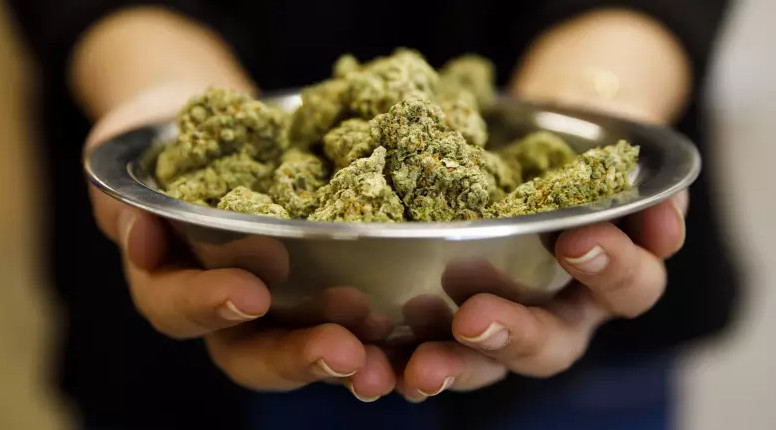Earlier this year, the main sponsor of a bill to legalize marijuana in New Jersey, Sen. Nicholas Scutari, D-Union, said, “If people are educated on the facts, I believe we’ll win them over.”
I disagree. Facts are not his friend. It’s the peeling back of the facts that has slowed momentum on legalization efforts. The loss of momentum was spelled out in the story “Legal weed in N.J.: Not so fast” by my Gannett NJ colleague James Nash.
In Gov. Phil Murphy’s first budget address, he had included $80 million in projected tax revenues from legalized pot — $20 million for medicinal marijuana and $60 million from recreational weed. The budget signed into law recently by Murphy didn’t include even a nickel bag’s worth of revenue for recreational pot. Both Scutari and Senate President Steve Sweeney had hoped to get a legalization bill on Murphy’s desk prior to passage of the budget.
Scutari said it was likely a bill would be passed this summer, but acknowledged that a consensus had yet to be reached on several key issues, including the number of pot retailers and marijuana manufacturers that would be authorized, which agency would be responsible for enforcing marijuana laws and whether prior marijuana convictions would automatically be expunged from criminal records.
Those are far from the only hurdles the pro-pot lobby faces. Two of the most important are opposition from several black legislators and the New Jersey State Association of Chiefs of Police, which has come out against legalization. Those objections alone could kill the bill.
Murphy and Scutari have cited two main justifications for making pot legal: it will generate revenue for the state and be a boon to New Jersey’s economy, and it will end the racial disparity in arrests for marijuana possession. The latter is demonstrable untrue, and the former is overstated.
Here are five reasons — out of many — that suggest legalization is an irresponsible idea.
• It would send a mixed message to young people about drug use in the midst of a war against opioid abuse.
• Contrary to what the pro-pot forces say, marijuana can be addictive. Don’t take my word for it. Says the National Institute of Health’s National Institute on Drug Abuse: “Recent data suggest that 30 percent of those who use marijuana may have some degree of marijuana use disorder. People who begin using marijuana before the age of 18 are four to seven times more likely to develop a marijuana use disorder than adults.” That alone should be enough to scuttle consideration of legalization.
The experiences of two states that have legalized marijuana, chronicled in the “High Hopes” series by Nash and Asbury Park Press Staff Writer Mike Davis, raised a number of red flags. For instance:
• Marijuana was involved in 51 fatal crashes in Colorado in 2016, compared to just 19 the previous year.
• There is no reliable way to test for THC, the psychoactive compound in marijuana.
• In California, in the first quarter of this year, the California Highway Patrol reported 886 drugged driving arrests, more than double the number during the same period last year.
• In Colorado, out-of-state visitors accounted for 44 percent of retail marijuana sales and 90 percent of sales in heavily trafficked mountain communities in 2014. If New Jersey becomes the first state on the East Coast to legalize marijuana, it could draw stoners from all its neighboring states.
• In California, illegal pot dispensaries outnumber legal ones, due in part to steep tax rates — more than 25 percent in California and up to 34 percent in Colorado — that are “sending potential customers back to the street corner dealer.” That undercuts the argument that legalizing weed will put the dealers out of business.
Are the facts on the side of Murphy, Sweeney and Scutari? No. The more legislators and the public know about the potential pitfalls of legalization,the less likely they are — or should be — to embrace the idea.
Credit: www.app.com




